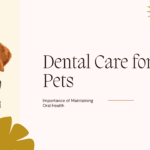Who needs to be made aware of the sweet and safe honey benefits? Honey loads up an instant jab of taste to soothing morning tea or a mild spread over the avocado toast for breakfast. For ages, honey has been the safest sweetener used in cuisines globally. Can you introduce honey to dogs, too? Let’s analyze!
Yes! Honey is safe and has several benefits for canine health. It is enriched with minerals and essential vitamins, such as Vitamins B6, B12, D, C, and E, Folic acid, and other micronutrients like calcium, magnesium, copper, iron, and manganese.
Raw honey intake positively influences your furry friend’s immunity levels and has disease-combatting properties. Fusing tasty honey enzymes into your canine’s meal can give it a perfect start to its day!
Small quantities of honey can surely benefit your little doggy, but avoid overindulgence as it may spike their sugar levels, too. It can lead to problems like obesity, diabetes or dental problems in them. Here’s a detailed extract on how beneficial is this golden nectar for your pup, the right amount to take, potential risks, and ways to introduce it into their diet!
Which Type of Honey is Safe for Canines?
If you are willing to add a honey pop to your dog meals, getting familiar with its types is essential. Here we go:
- Raw Honey- It is the purest and most natural honey reaching you from the hive through jars. Raw or unpasteurized honey is rich in medicinal properties and nutrients as compared to any other form. This honey is the most considerable pick for even small pups to boost their immunity health and develop resistance to fight bacterial infections.
- Pasteurized Honey—Here, raw honey is exposed to high temperatures to enhance its shelf life, remove yeast cells, and improve appearance. The pasteurization process might reduce the beneficial compounds of raw honey and is less recommendable than the earlier option. However, using a minimal amount of homemade dog treats can be an excellent choice to give it a punch of sweetness.

What is the Suggestive Amount of Honey to Serve Dogs?
Advisable honey amounts do not vary much, whether for humans or canine companions. It should not exceed 10% of daily calorie intake. Reserve the remaining 90% for healthy dog meals and recipes.
A single teaspoon of raw honey consists of 6 grams of sugar and 20 calories. Here’s a specific bifurcation of recommended honey intake in healthy pooches.
– ¼ teaspoon/daily for small dogs weighing 2-20 Pounds
– ½ teaspoon/daily for dogs weighing 21-30 pounds
– 1 teaspoon for medium dogs weighing 31-50 pounds
– 1 ½ teaspoon for large dogs weighing 51-90 pounds
– 2 teaspoons for bigger dogs weighing over 90+ pounds
Best Ways to Serve Honey in Your Dog’s Diet!
It is always a good idea to consult your vet before including honey in your canine friend’s meal if they have any pre-existing medical condition or pet parents are unaware of their history.
In adoption cases, seeking professional advice to add anything new to a dog’s diet is advisable. Once confirmed, here are a few easy ways to serve delightful honey-rich recipes to your loveable pugs!
- Delight them with a Spoon of Raw Honey.
Luring your pet dogs with a teaspoon of honey upon finishing their food bowl is a good idea. Allow them to cherish the sweet and soothing honey flavour for a refreshing effect. It also benefits pugs suffering from mild cough issues.

- Drizzle Over Food
Pump up your canines’ culinary excitement by seasoning a few drops of honey over their food. This imparts numerous nutritional benefits and also enhances the flavours of their daily meals.

- Prepare Honey Cube Treats
Keep it simple by making delightful honey treats in frozen cube form to bring excitement to your dogs’ faces. Charm up the summer refreshments for your pawsome buddies with this hydrating and cooling honey treat. While serving, chop the cubes into small pieces to avoid choking concerns in pugs.

- Honey Desserts are Delectable
If it’s your pup’s birthday or a special occasion, celebrate the moment with some relishable honey-based desserts. Whip it with other ingredients or fruits for a scrumptious and nutritional serving. Your four-legged companion is bound to usher with joy and excitement with its taste!
- Ready-to-Eat Honey-Based Treats
Pet parents who are hustling at work and lack time to make honey treats at home can also buy these delights from the stores. Honey is the main ingredient in these chewable treats from reputed brands, which are worth considering.
Can Dogs Receive Health Benefits from Honey?
Of course! Honey can be the dietary staple for your furry friends owing to its numerous health advantages. Below listed are the few positive effects of honey on canines.
- Fulfills Nutritional Requirements
Unpasteurized honey contains an abundance of Vitamins like B and C, various antioxidants and essential minerals required for overall growth and development. Including honey in your dog’s meal can be a mindful step towards their better well-being.
- Anti-Inflammatory Properties
Raw honey has numerous anti-inflammatory properties, effectively soothing all types of inflammation issues, including external or internal. Pet pooches dealing with minor injuries or pain can get relief with a small amount of honey intake.
- Relieves Cough
Honey has multiple anti-inflammatory and antimicrobial effects, making it a perfect home remedy for kennel cough. It also helps soothe a sore throat, kill bacterial infections, and reduce acute coughing issues. Adding a small amount of honey to warm water and serving your pug can provide instant cough relief.
- Healing Wounds
The honey application can also prove valuable in wound care for canines. Its exceptional compounds prove effective in healing bites, sores, cuts, burns, and scratches in dogs. Clean the minor wound area and apply some honey to your pugs for an instant soothing effect. However, it’s a temporary remedy, and consulting your vet for severe injuries is always a viable decision.
Potential Risks of Honey in Canines
Pet parents must also be vigilant about the risks associated with honey intake in dogs, such as:
- Honey contains natural sugar, and its overconsumption may affect their dental health, and prolonged use also leads to tooth decay.
- High sugar content or excessive intake of honey also results in a spike in your canine’s blood sugar levels and leads to the onset of diabetes.
- Raw honey also includes a bacteria named botulism spores which leads to a rare illness affecting the nervous system of your canine. It mainly affects small pugs and puppies.
- Honey includes dense calories and leads to weight gain when served in large quantities.
- Avoid honey for obese dogs.
- A few furry pets are also allergic to honey pollen, which can cause swelling, itching, breathing problems, and other gastrointestinal issues.
- Begin with intake of small honey amounts and keep a check on pooches for any reactions.
Add Some Healthful Sweetness to Your Doggo Routine with Honey!
Hopefully, the above information might help pet parents and dog lovers include honey in their meals. Try some creative ways of including honey in doggy meals, such as accompanying it with peanut butter, yoghurt, banana, or dog-friendly biscuits.

Honey is undoubtedly a superfood for dogs, and pet owners can use it in numerous ways to satisfy their beloved pooches’ treat cravings. However, be careful of honey intake for canines with weak immune health or small puppies, as they might be prone to adverse effects or allergies.
Consult the veterinarian for clear guidance and an indication of the honey amount advisable for your furry paws depending on their overall health conditions.
Time to prepare some delectable honey-based recipes for your baby doggo!







